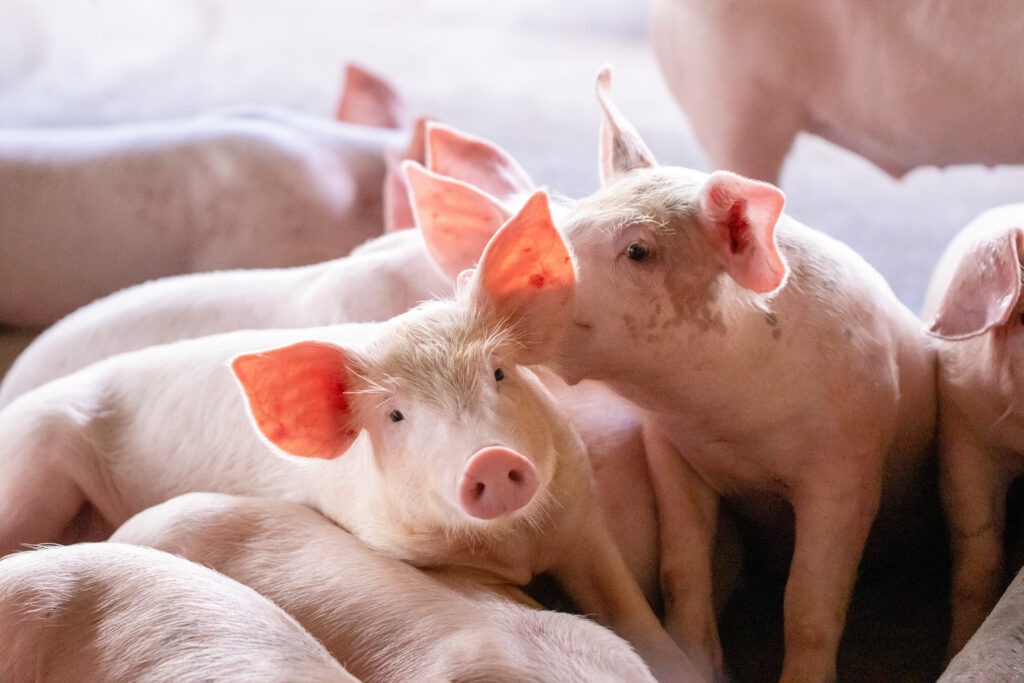The estimated number of pigs being slaughtered in GB is falling, as continued wet weather impacts productivity, particularly on outdoor units, according to AHDB.
GB estimated clean pig slaughter for week ending June 1 stood at 151,000 head, bringing the total for the five-week period leading up to it to 735,300 head, a 4% decline compared to the previous five weeks and 6% lower than the same period last year. Average carcase weights, from the EU spec SPP, fell month on month by 470g to 90.71kg, although the average was more than 1kg above the same period a year ago.
Meanwhile, pig prices remain very stable. In May the EU spec SPP averaged 211.19p/kg, an increase of 0.29p from April, as the price moved up and down by small amounts over the period, ending up at 211.39p/kg on June 1. The SPP continues to sit in the range of 210-212p/kg where it has been since the end of January.
The EU spec APP has shown more movement, movement, however, standing at 213.71p/kg in the week ending May 25, have gained 2.42p since the end of April. The APP has remained relatively stable since the end of December 2023, sitting in the range of 210-213p/kg.
The SPP is around 10p/kg down on a year and the APP is 6p below the same period in 2023.
With EU prices also very static, the price differential between the UK and EU reference prices has stabilised around 21p/Kg.
Subdued demand
Domestic demand remains subdued and although inflation has eased, consumers remain wary of their spending, AHDB analyst Soumya Behera said.
According to the latest retail data from Kantar, pigmeat purchased volumes fell by 2.1% year-on-year in the 12 weeks ending May 12, although there was variation by category.
Primary pork recorded growth of 4.8%, which was primarily driven by an increase in roasting joints following greater promotional activity over the Easter period. However, over all volumes of processed pig meat declined by 2.8% year-on-year driven by falls in gammon and bacon, although there was strong growth for burgers and grills as consumers look for variety.
Some drier warmer weather, bank holidays and upcoming sporting events may provide an uplift to demand in the coming weeks.




